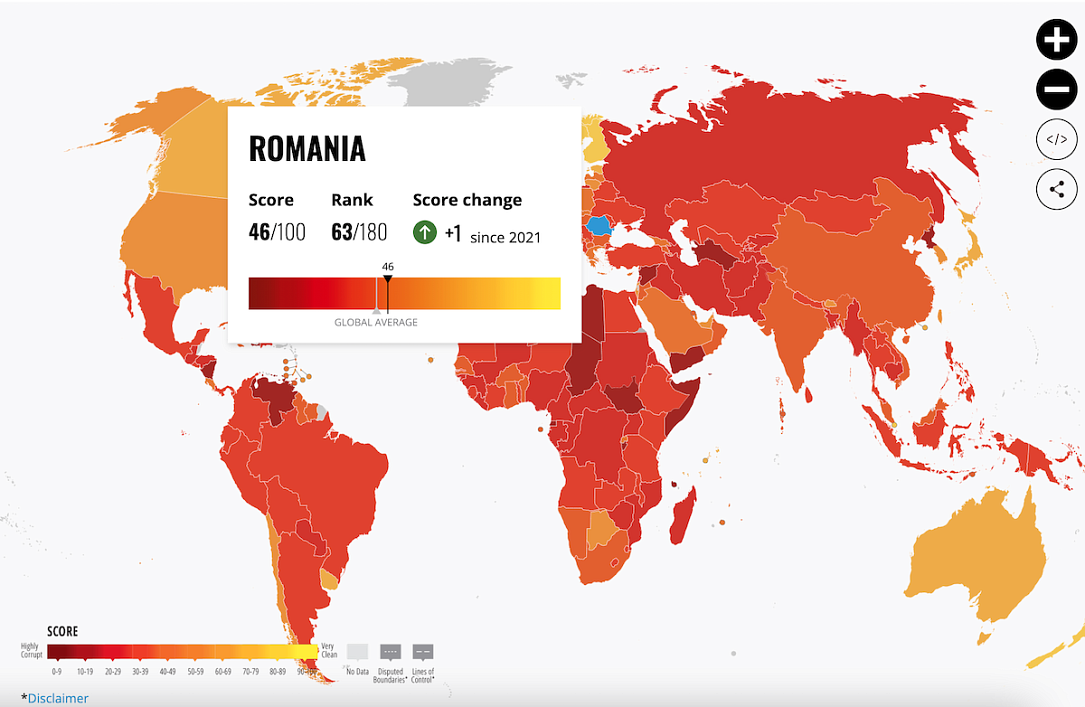Transparency International: Corruption in Romania near global average



A global map of corruption made by Transparency International ranks Romania in the middle of the list, with a score of 46, compared to 45 the previous year. The scale goes from 0 to 100, where 0 represents the highest level of corruption and 100 is the freest of corruption. The global average is 43, unchanged for over a decade.
Hungary surpassed Bulgaria in 2022, according to the most recent Corruption Perceptions Index. The country led by PM Viktor Orban won the unflattering title of the most corrupt country in the European Union.
The lowest levels of corruption in the world were recorded in the Nordic countries, followed by New Zealand, Switzerland, and the Netherlands. At the opposite end, with the highest levels of corruption, are North Korea, Syria, Somalia, South Sudan, Chad, as well as Nicaragua, and Venezuela.
Ukraine is rated with a score of 33, the same as, for example, Mongolia, and worse than Kazakhstan or Belarus. Moldova received a score of 39, better than Ukraine but significantly worse than Romania, while Russia received 28.
Transparency International shows in its analysis that most countries are unable to end corruption. The global average remains unchanged for over a decade at just 43 out of 100. More than two-thirds of countries score below 50, while 26 countries have fallen to their lowest scores yet. Despite concerted efforts and hard-won gains by some, 155 countries have made no significant progress against corruption or have declined since 2012.
The same analysis shows that global peace has been deteriorating for 15 years, with corruption undermining governments’ ability to protect people. It also erodes public trust and causes security threats that are difficult to control.
On the other hand, conflict creates opportunities for corruption and undermines government efforts to stop it. Even countries with high scores on the Corruption Perceptions Index (CPI) play a role in the threats that corruption poses to global security. For decades, these countries have received dirty money from abroad, allowing kleptocrats to increase their wealth, power, and destructive geopolitical ambitions.
“Although each country faces different corruption challenges, this year's index reveals a continued stalemate worldwide,” the report says.
Western Europe, which contains the countries with the best score, has been stagnant or has witnessed a decline in the past 5 years, allowing threats to the rule of law to fester.
“On the other end of the index, countries with low scores are also unable to make significant progress. In many parts of the Americas, Eastern Europe and Central Asia, and Sub-Saharan Africa, restrictions and attacks on civic space and basic freedoms continue as multiple crises threaten security and stability, democracy and human rights,” the report adds. The same story – or worse – is repeated in various countries in the Asia-Pacific, Middle East, and North Africa regions.
(Photo source: screenshot from Transparency.org)